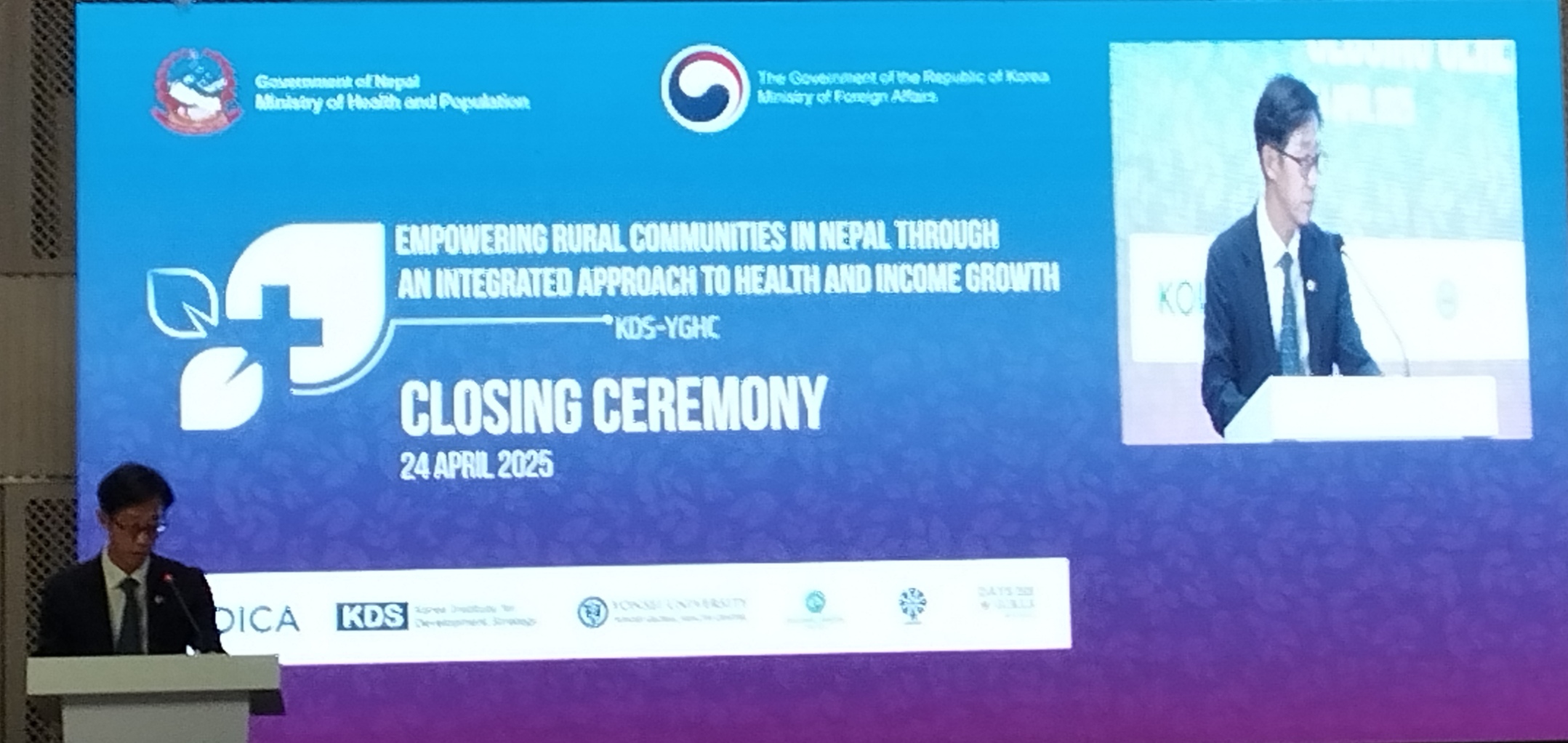Lalitpur, Nepal – The Closing Ceremony of the Empowering Rural Communities in Nepal through an Integrated Approach to Health and Income Growth (ERCN) Project took place on Thursday, April 24, 2025, at Square Hotel, Pulchowk, Lalitpur. Organized collaboratively by the Korea Institute for Development Strategy (KDS), Yonsei University Global Health Center, and Days for Girls Nepal, the event marked the culmination of the project’s efforts to enhance the quality of life for rural communities in Nepal.
The KOICA-funded ERCN project was dedicated to empowering rural communities through integrated initiatives in healthcare and income growth. By addressing these critical areas, the project has significantly contributed to the well-being, resilience, and economic stability of Nepal's rural population.
The program, which ran from 11:00 AM to 3:00 PM, included a series of impactful sessions, beginning with participant registration and an introductory session. The national anthem and opening remarks set the tone for a day of celebration and reflection.
The highlight of the event was the presentation of the project results, which showcased significant achievements in improving healthcare services, boosting income opportunities, and building emergency preparedness in rural areas. A video presentation outlined the project's journey, followed by discussions on key agenda items and lessons learned. Stakeholders also took the opportunity to express their gratitude through tokens of appreciation and congratulatory remarks.
The event featured engaging cultural elements, including a traditional performance that added a celebratory note to the proceedings. Participants and dignitaries gathered for group photo sessions and an official lunch and exhibition, which provided an opportunity to network and celebrate the project's success.
Representatives from partner organizations emphasized the importance of continued collaboration to build on the ERCN project's success. By laying a solid foundation for sustainable development, rural healthcare improvements, and disaster management, the project has created a path forward for more resilient and self-reliant communities.